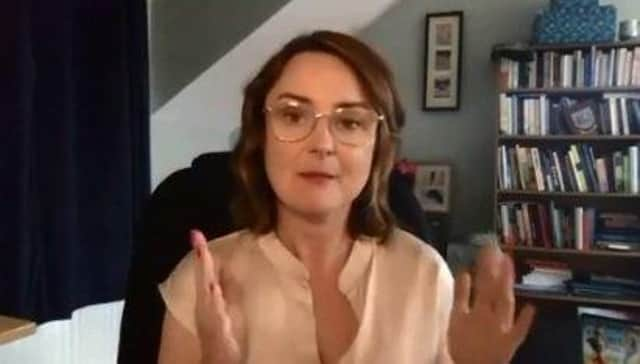Prof. O’Neill says suicide rates fell at start ofCOVID crisis but is worried over furlough end


Professor Siobhan O’Neill told a Gasyard Féile event that paradoxically the crisis resulted in a decrease in rates.
This, for example, was the case during the recent conflict in Ireland and it appears to have been repeated during the initial stages of coronavirus.
Advertisement
Hide AdAdvertisement
Hide Ad“The suicide rates generally decreased which is what you find. It happened in Northern Ireland during the Troubles. People have a sense of community spirit. We are in it together, you know, there’s support. That keeps people going. It keeps people alive,” she suggested.
However, as time has worn on there has been a worrying trend of suicide rates rising again.
“There was this uncertainty. We didn’t know how it was going to end up. A lot of us thought this was going to be six months at worst.
“But now it’s actually going on longer. What we are seeing is some upward trends there in certain groups and a bit of concern about suicides particularly in young people,” said Prof. O’Neill.
Advertisement
Hide AdAdvertisement
Hide AdThe Magee-based mental health expert said it was difficult to draw conclusions about these increases because from a statistical standpoint the numbers were small.
She explained: “I know there are high suicide rates but when you are really talking about it statistically it wouldn’t be significant.
“So if you have five a week normally, if it goes up to six or seven, that is huge for a community but is it a trend? We don’t really know.”
Prof. O’Neill said the inevitable end of the government furlough scheme which has kept people in jobs and provided livelihoods throughout the pandemic is a concern.
Advertisement
Hide AdAdvertisement
Hide AdShe said the government needs to put supports in place to protect vulnerable people.
“The international evidence from previous pandemics in similar situations will tell us that it is the economic conseqences as well. It’s whether people lose their jobs. It’s how the government deals with that recession that’s coming now, that’s actually going to have a massive impact on suicide rates.
“It’s what happens whenever furloughing stops in November. I’m really concerned about that. It’s how we protect vulnerable people and that’s where we are going to see changes in suicide rates.
“There is so much we can do. We were able to bail out the bankers. We can do this now. We can inject money. We can invest in people and jobs. We can continue this if there is a will,” she declared.
The Lifeline helpline is open 24 hours a day, every day of the year. Anyone of any age living in the North can call for free on 0808 808 8000 if they are experiencing distress or despair.